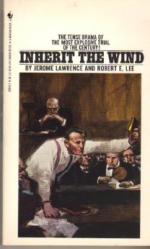|
This section contains 516 words (approx. 2 pages at 400 words per page) |

|
1920s/1930s: After World War I, the country seemed to change. Idealism was replaced by cynicism. Some authors began to question both authority and tradition. Moral codes changed along with hemlines and language. The sense of connection to the past appeared to be deteriorating.
1950s/1960s: After World War II, the country did change. Women who worked in the factories during the war were reluctant to return to their traditional pre-war domestic roles. Men who had seen the horrors of battle wanted to return to the way things were before they left. The technology that was to be for the benefit and improvement of humankind destroyed cities and ushered in a sense of helplessness and disonentation.
Today: With the collapse of the Berlin Wall and the end of the Cold War, relative peace reigns. However, uncertainty about the future still holds people in its...
|
This section contains 516 words (approx. 2 pages at 400 words per page) |

|




